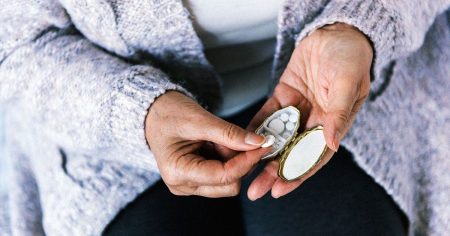Researchers are studying changes that occur in the body with age to understand their implications and potential modifications. A recent study published in Nature Aging found that a specific lipid, bis(monoacylglycero)phosphate (BMP), begins to accumulate in muscle tissue with age. This buildup of lipid was observed in both mice and humans, particularly in older individuals. The researchers also found that exercise can help reduce the accumulation of this fat in humans, specifically in postmenopausal women. The researchers suggest that studying complex lipids like BMPs may help in understanding age-related diseases and longevity. Additional research found that there was almost a tissue-wide accumulation of BMP in older mice, and similar results were seen in human muscle tissue.
To further investigate the impact of exercise on BMP levels, a study involving 12 postmenopausal women was conducted. The women, who were overweight and exercised less than three hours a week, participated in three different activity regimens: sitting, exercising, and standing. After a short intervention period, the researchers found that BMP levels were lower following the exercise regimen. The study authors highlighted the importance of understanding the relationship between complex lipids and aging, and how exercise can influence lipid levels. They emphasize the need for additional research to determine the significance of BMP accumulation with age and whether it is harmful or beneficial to the body.
However, the research does have limitations, including the use of mice in the initial studies and conducting exercise interventions only on women for a short duration. Future research may include larger sample sizes, different tissue types, and longer exercise interventions to assess the long-term effects of exercise on BMP levels. The researchers acknowledge that more research is needed to understand why BMP accumulation occurs, whether it is detrimental or protective, and how lipid-lowering medications may influence BMP levels. It is still unclear whether the increase of BMP with age is helpful or harmful, and further studies are required to clarify the potential impact of these lipids.
Despite the need for additional research, the study suggests that older adults may benefit from regular exercise to potentially reduce BMP levels and maintain overall health. While it is still early to determine the long-term effects of BMP accumulation, exercise has many known benefits for older adults, including improving mobility, cognitive function, sleep, energy, and mood. The World Health Organization (WHO) recommends regular exercise for older adults to decrease the risk of falls, anxiety, depression, all-cause mortality, heart disease, and stroke. By incorporating a variety of aerobic, muscle strengthening, and balance activities, older adults can develop individualized exercise plans to enhance their well-being and independence.















